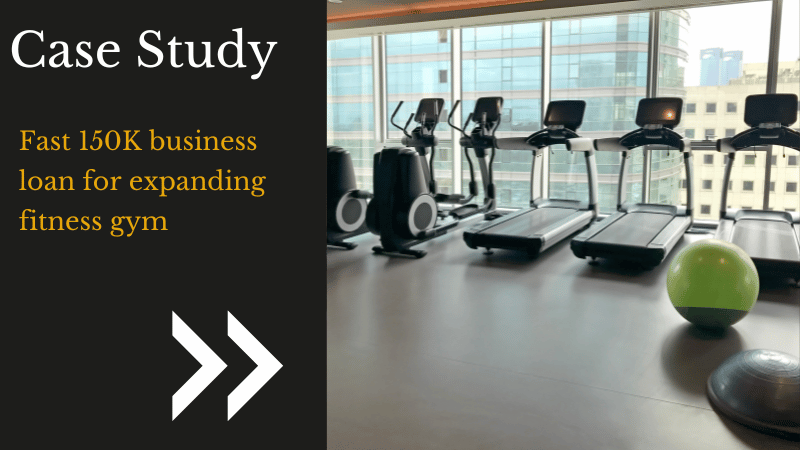What is Invoice Finance?
Invoice finance is a specialised type of business finance that provides a short-term solution during the difficult waiting period between an invoice being issued and the client making payment.
Many companies can suffer in that long 30 or 60-day period (and for some companies, even longer). The work has been done, outgoings need to be covered, but the money is yet to come in - invoice finance offers a way to release the capital that you know is coming, but isn’t here just yet.
There are two main types of invoice finance, known as invoice factoring and invoice discounting. Each serves a slightly different need. It’s important to understand both types when considering invoice financing.
Related: Our breakdown of what qualifies and does not qualify as a business loan - a deconstruction of the business loan definition.
Invoice Factoring
Invoice factoring differs from discounting in that it's not a loan, but the sale of your outstanding debt to a third party, known as the factoring company:
- The factoring company effectively purchases the debt from you, giving you a substantial portion of the invoice total immediately to use as you need.
- The invoice is then owned by the factoring company, who will be paid directly by your client.
- Once it is paid, the factoring company settles the remainder of the value with you, taking their fees as agreed.
Importantly, because the factoring company owns the debt, invoice factoring is a transparent transaction and your clients will be aware that you have used the service.
For some businesses, this can be off-putting as it may affect your client relationships.
However, there is the added bonus that the factoring company will use their resources to recover the debt, making it an effective solution for clients who have defaulted on their invoice terms that offers an alternative to direct legal action.
Invoice Discounting
The second type, invoice discounting, is a loan that is borrowed using your company's accounts receivable (the amount of money owed to you in unpaid invoices) as collateral.
Like any other loan, an invoice discounting loan is subject to interest, though its repayment terms are typically shorter and tied to the expected payment date of the invoices.
An invoice discounting loan can be taken against either the entire sum of your accounts receivable or merely a part of it.
This means you can use invoice discounting to effectively pay the invoices of one client, while leaving your other outstanding invoices in the usual fashion. These are known as full invoice discounting or part invoice discounting.
The maximum size and interest rate of your invoice discounting loan will depend on several factors;
- your previous invoicing and payment history
- the terms of your outstanding invoices
- and your business sector.
- Full invoice discounting loans are typically between 75% and 90% of your accounts receivable.
One great advantage of invoice discounting over invoice factoring is that invoice discounting is an entirely private loan between the lender and your company. It is unseen by your clients and has no impact on your relationship with them.

Is Invoice Finance Right for My Company?
With both invoice discounting and invoice factoring, you get access to the money quickly at the cost of interest and fees. For businesses suffering a short-term cashflow problem, invoice finance can be the perfect lifeline.
However, a lot can depend on getting a good deal.
There are many banks and financial institutions that can offer both invoice discounting and invoice factoring, but fees can vary wildly and, in some cases, may be so significant that it undoes much of the benefit of releasing the money early.
Like any business finance, it pays to shop around before committing to a loan or factoring agreement. For this reason, you may want to consider using an invoice finance broker.
What is a Broker?
A financial broker is someone who acts as a middleman between you and the lenders, using their knowledge and experience of the market to filter out the poorer offers and help you select the finance deal that's best suited to your particular need.
And more specifically, invoice finance brokers are specialist brokers. Like us, at Clifton Private Finance:
- We do the substantial work, so you don't have to
- We obtain the best possible invoice discounting loans and invoice factoring products for our clients.
- Our understanding of the finer nuances of invoice finance is a valuable resource for all types of business owners looking to secure finance.
Use our invoice loan calculator to get a quick quote. Or get a bespoke business loan quotation.
Your loan details
How much funding do you require? (£):
Repayment term (months):
Annual interest rate (%):
Your results
Monthly payments:
Average monthly interest:
Total interest:
Total cost of finance:
How Can an Invoice Finance Broker Get Me the Best Deal?
Getting the best invoice finance deal involves ongoing research and understanding of the potential pitfalls.
With a market that constantly changes, as interest rates and fees fluctuate, ensuring that you get the most beneficial invoice finance deal is a complicated process.
While it is certainly possible to put in this work yourself, the hours spent comparing the deals to find the one that is most suitable can be lengthy.
- An invoice finance broker does all of this legwork for you, cutting the time down in obtaining a deal to a minimum, as well as creating a shortlist of the best up-to-date deals for your business.
Invoice finance does come with a cost, in both interest rates and fees. The invoice finance broker will assess those costs, weigh up the pros and cons of each product, and present that information to you in a clear way to ensure you are able to make an informed decision before proceedin
Case study: Take a look at our case study below on how we secured a £150k business loan for expanding a fitness gym
How Does an Invoice Finance Broker Get Paid?
One question that is often asked is “What’s in it for the broker?” - it's not an unreasonable question to ask.
The invoice finance broker doesn’t just help you find the deal that's right for you, they are also helping the financial institutions and banks market their products to businesses. It is the lender who pays the broker a commission for the sale. Brokers may also charge a fee for their service but generally won't take a percentage commission of the deal.
The Pros and Cons of an Invoice Finance Broker
Con - A broker may not get a better deal
The truth is, while they will work to the best of their ability, a broker may not actually be able to find you a better deal than the one you have discovered yourself. Still, even though this is seen as a negative, really there's nothing lost!
Con - Some lenders avoid brokers
Unfortunately, the inverse is also true, and there are a few lenders who prefer to avoid working through a broker.
Con - Potential fees
Some invoice finance brokers will charge you additional fees. Make sure you ask about this and know any costs in advance.
Alternatives to an Invoice Finance Broker
If you don’t like the sound of an invoice finance broker, but are keen to get invoice financing, there are two main options available:
- Go to your bank - Many banks offer invoice financing products. While likely not the best rate, they can easily explain options and facilitate financing. Not all banks provide these services though, so check with yours.
- Do your own research - Brokers simply have experience navigating options. But you can identify lenders yourself through online comparisons. Just be sure to closely examine terms and fine print when evaluating deals.
Alternatively, aside from invoice financing there are other types of unsecured business loans, and few other options such as:
- Equity financing: Sell partial company ownership to investors in exchange for a large, lump-sum financing amount to fund operations.
- Peer-to-peer lending: Borrow from a pool of unrelated individual investors rather than a bank through an online peer lending platform.
- Asset-based lending: Use your business assets like property, inventory, or equipment as collateral to get a loan. This option doesn't require invoices
Choosing Clifton Private Finance as Your Invoice Finance Broker
At Clifton Private Finance, we have a team of dedicated invoice finance brokers with access to all the top specialist business lenders in the UK market today.
Our years of expertise and client-centric dedication means we are here to help you understand the options available to make an informed choice that is right for your business.
Contact us today to secure the perfect invoice financing for you.
Call us on 0203 880 8890, complete our contact form above or book an appointment.












